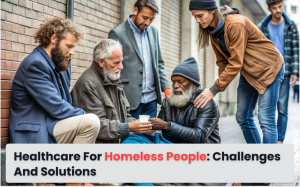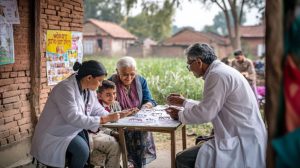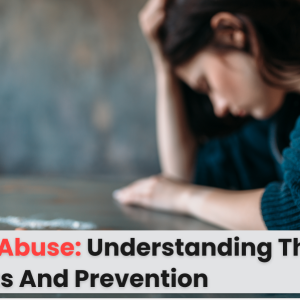
Healthcare for Homeless People: Challenges and Solutions
Homelessness remains a significant issue across many regions, particularly in countries like the USA and Canada. While there are many challenges associated with being homeless, one of the most critical is the lack of access to adequate healthcare. Homeless individuals often face severe health problems, yet their ability to access and receive care is severely limited due to various structural and personal barriers. This blog explores the major challenges faced by homeless people in accessing healthcare and discusses potential solutions to address this urgent issue.
Challenges in Providing Healthcare to Homeless Individuals

1.Lack of Insurance and Financial Resources
One of the biggest hurdles homeless individuals face is the lack of health insurance or the ability to afford healthcare services. While both the USA and Canada offer public health systems, homeless individuals often fall through the cracks. In the USA, many homeless individuals are not enrolled in Medicaid or other insurance programs due to the complexity of the enrollment process or lack of necessary documentation. In Canada, while there is universal healthcare, access to necessary services like dental care, mental health support, and addiction treatment remains a challenge.
2.Chronic Health Conditions
Homeless people are at a much higher risk of developing chronic health conditions due to poor living conditions, limited access to nutritious food, and exposure to the elements. Conditions like hypertension, diabetes, respiratory issues, and heart disease are more common among homeless populations. Additionally, untreated minor conditions can become serious due to lack of care, leading to hospitalization or long-term health problems.
3.Mental Health and Addiction Issues
Mental health problems and substance abuse are widespread among homeless populations, often creating a cycle where mental illness or addiction contributes to homelessness and vice versa. Without proper care and support, mental health conditions like depression, anxiety, bipolar disorder, and schizophrenia can worsen, making it difficult for individuals to navigate the healthcare system or seek help.
Substance abuse, which is both a cause and consequence of homelessness, further complicates healthcare access. Many homeless individuals use drugs or alcohol as a coping mechanism for their harsh living conditions, yet addiction services are often underfunded or inaccessible.
4.Barriers to Accessing Healthcare Facilities
Even when homeless individuals seek healthcare, many face barriers such as a lack of transportation, inability to afford medication, or difficulty navigating the healthcare system. Additionally, the stigma associated with homelessness often leads to discrimination in healthcare settings. Many homeless people report being treated poorly or turned away from medical facilities because of their appearance, behavior, or lack of insurance.
5.Lack of Continuity of Care
For those experiencing homelessness, accessing consistent and long-term healthcare can be extremely difficult. Frequent relocation, lack of stable contact information, and the transient nature of homelessness mean that follow-up care, ongoing treatment, and regular check-ups are rarely possible. Without continuity of care, managing chronic illnesses or completing a prescribed course of treatment becomes nearly impossible, leading to worsened health outcomes.
6.Unsuitable Living Conditions
Poor living conditions, such as exposure to extreme weather, unsanitary environments, and overcrowded shelters, contribute to the spread of infectious diseases among homeless populations. Conditions like tuberculosis, hepatitis, and skin infections are more prevalent in these communities. These environments make recovery from illness difficult and increase the likelihood of complications.
Solutions to Improve Healthcare for the Homeless

Addressing healthcare for the homeless population requires a multi-faceted approach that considers their unique needs and challenges. Here are some potential solutions that can help bridge the gap between homelessness and healthcare access:
1.Mobile Health Clinics
One of the most effective solutions to improve access to healthcare for homeless individuals is the use of mobile health clinics. These clinics, which travel to areas where homeless people live or congregate, bring medical professionals directly to the patients. Mobile clinics offer services such as primary care, mental health screenings, addiction treatment, and vaccinations, reducing the need for individuals to travel to healthcare facilities.
Programs like the Mobile Health Van in Toronto and Healthcare for the Homeless in the USA have proven successful in providing care to homeless individuals who would otherwise go without. These mobile units help reduce the healthcare access gap by offering immediate, on-site care.
2.Integrated Healthcare Services
Providing integrated healthcare services, which combine physical health, mental health, and substance abuse treatment in one location, can significantly improve the quality of care for homeless individuals. Offering comprehensive services under one roof can make it easier for individuals to receive the holistic care they need without navigating multiple systems.
The Housing First model, used in Canada, integrates housing with healthcare and social services, helping homeless individuals stabilize their living conditions while also receiving necessary healthcare support.
3.Outreach Programs and Case Management
Outreach programs that actively seek out homeless individuals and offer case management services can ensure that homeless people are connected with the healthcare resources they need. Case managers can help homeless individuals navigate the healthcare system, enroll in insurance programs, and coordinate their care across different providers.
For example, programs like Pathways to Housing in the USA provide both housing and healthcare services, with case managers assigned to help homeless individuals access the medical care they need.
4.Mental Health and Addiction Services
Expanding access to mental health and addiction services is crucial to addressing the healthcare needs of homeless individuals. Increased funding for mental health professionals, addiction counselors, and rehabilitation programs can provide homeless people with the resources needed to manage their mental health and recover from addiction.
Telehealth services have also emerged as a promising solution for providing mental health support to homeless individuals, particularly during the COVID-19 pandemic. These services allow people to connect with therapists or counselors remotely, reducing barriers to care.
5.Policy Changes and Government Support
Governments at both the local and national levels must prioritize healthcare access for homeless populations. Policies that simplify the process of enrolling in Medicaid (USA) or improve access to specialized services like dental care, mental health, and addiction treatment (Canada) are essential for ensuring that homeless individuals can receive the care they need.
Increased funding for homeless shelters and affordable housing programs is also critical, as stable housing is closely linked to better health outcomes. Providing safe and secure housing reduces the risk of disease transmission and gives individuals a better chance of managing their health.
Summary
Healthcare for Homeless People: Challenges and Solutions
Homeless individuals face numerous barriers to accessing healthcare, including lack of insurance, chronic health issues, mental health and addiction problems, and logistical challenges. The transient nature of homelessness also limits continuity of care, exacerbating health conditions. Solutions like mobile health clinics, integrated healthcare services, and expanded mental health and addiction support can help address these challenges. Government policy changes and outreach programs are essential in ensuring that homeless populations in the USA and Canada receive the care they need for better health outcomes.





